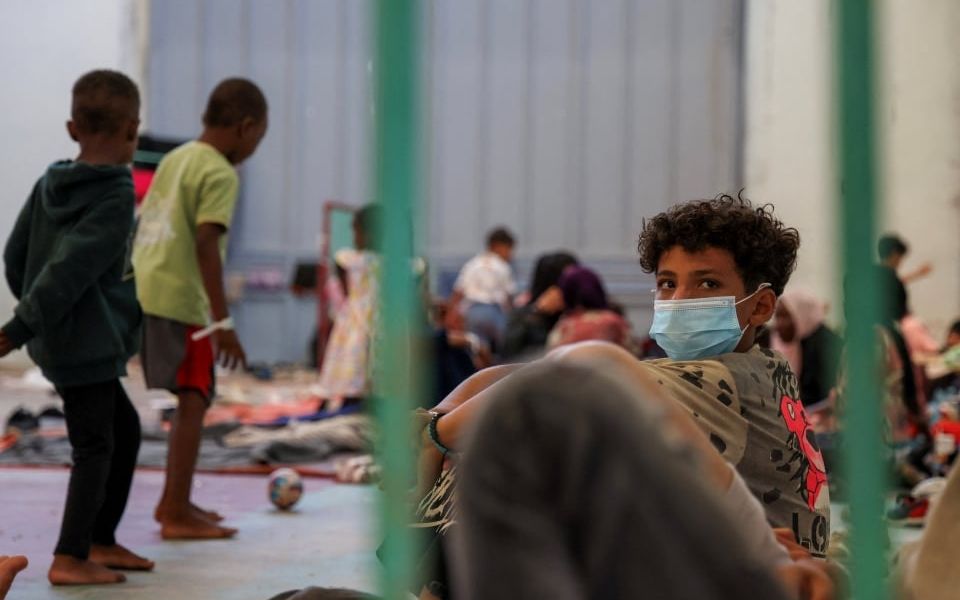
Newly arrived migrants are sheltered in a municipal hall, in the town of Agyia, on the island of Crete, Thursday. [Nicolas Economou/Reuters]
Tensions rose on Crete after clashes between migrants broke out in the town of Agyia, highlighting what officials described as security limits being exceeded and serious public health risks.
Prime Minister Kyriakos Mitsotakis and the regional governor of Crete agreed on Wednesday to establish two new reception facilities on the island, though their locations remain unresolved and contentious.
At the same time, UN Assistant High Commissioner for Refugees Ruvendrini Menikdiwela raised concerns about how governments are using the threat of migrants to satisfy their interests, speaking in a closed briefing to European journalists.
Nonetheless, for the first time, the UN refugee agency publicly accepted the idea of asylum-processing centers outside the European Union, as well as holding facilities for rejected applicants. Menikdiwela also expressed hope Greece would not extend its three-month suspension of asylum requests for arrivals from Libya, set to expire October 9.
The agency warned of deepening financial strains from funding cuts imposed mainly by the US and Europe. “We are losing about 4,000 staff and nearly one-third of our budget. More than 11 million displaced people who received aid last year will not receive it this year,” Menikdiwela said. She emphasized that without resources, asylum systems weaken and “people are forced to move further, including to Europe.”
Menikdiwela defended the asylum system as essential, noting, “The Refugee Convention and other agreements saved millions of lives.” She stressed that most refugees are hosted in poorer states, not wealthier countries that often speak of “invasions.”
She acknowledged Europe faces challenges such as asylum backlogs and exploitation of procedures, but insisted it is “crucial to distinguish refugees from migrants” and ensure rejected applicants return home. Properly safeguarded centers and transfers to third countries, she concluded, are legal under international law.